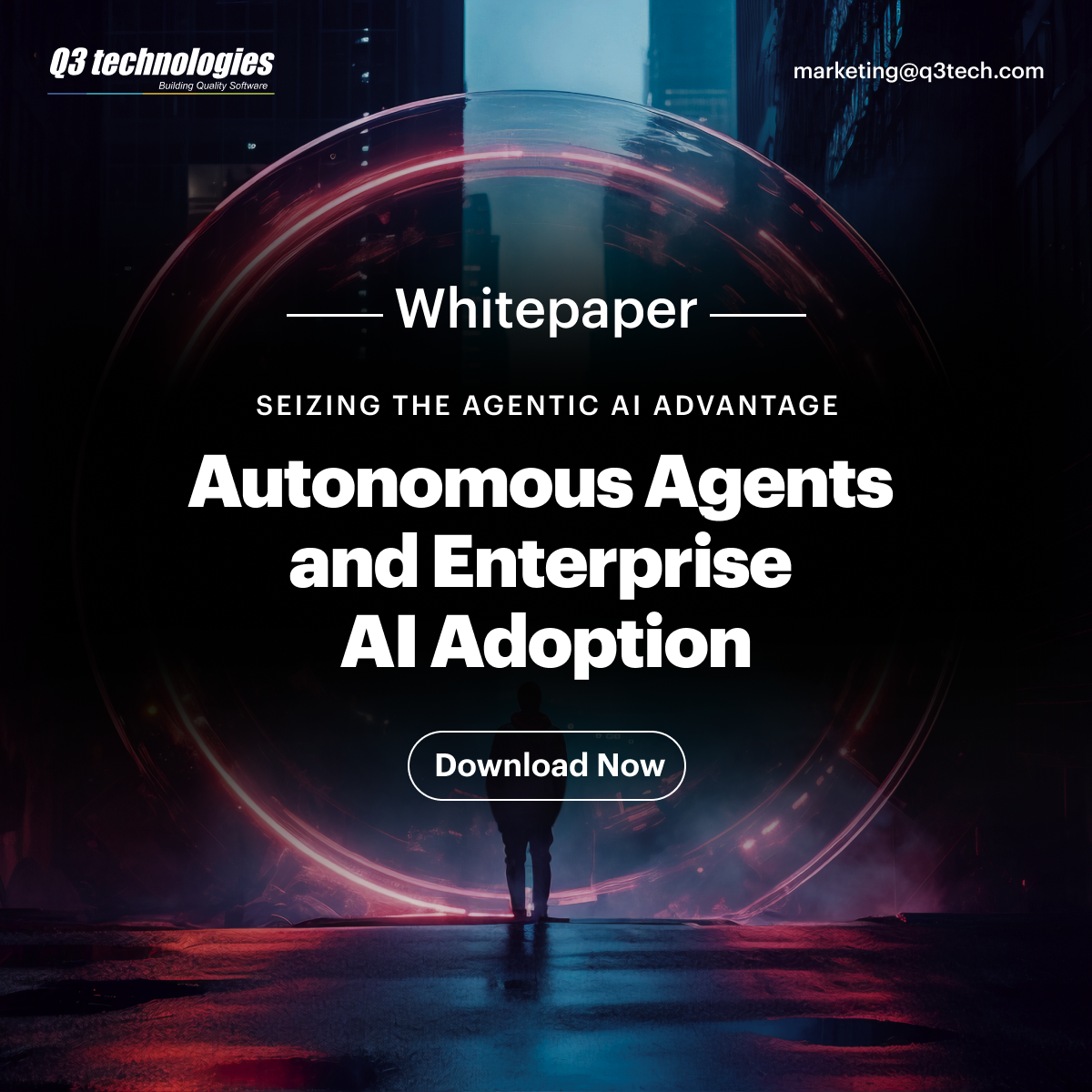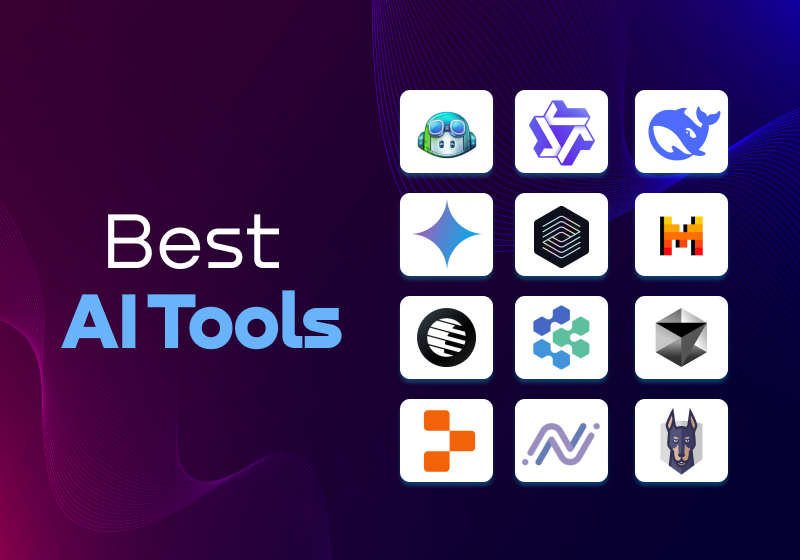AI
AI in Industrial Automation: Transforming the Factory Automation Industry
 Updated 06 Jun 2025
Updated 06 Jun 2025

The rise of AI in industrial automation is reshaping the global manufacturing landscape at an unprecedented pace. According to a recent report by Statista, the size of AI in the manufacturing market is expected to grow from USD 1.1 billion in 2020 to USD 16.7 billion by 2026, exhibiting a compound annual growth rate (CAGR) of over 57%. This explosive growth is fuelled by factories adopting AI-driven systems to enhance efficiency, reduce downtime, and increase production accuracy. In parallel, the deployment of automated industrial robotics integrated with AI capabilities is accelerating, with IDC predicting that by 2025, over 70% of industrial robots will feature AI-powered functionalities.
The factory automation industry is no longer just about mechanical precision but has evolved into a complex ecosystem where artificial intelligence in industrial automation drives innovation. From predictive maintenance and real-time analytics to adaptive production lines, AI transforms every aspect of manufacturing operations. This trend compels manufacturers to partner with a trusted Software Development Company or AI Agent Development Company specializing in AI Development Services to stay competitive in a rapidly evolving market.
How AI Is Disrupting the Factory Automation Industry
The Growing Influence of Artificial Intelligence in Modern Factories
The integration of AI in industrial automation is disrupting traditional manufacturing processes, ushering in a new era where factories are becoming more autonomous and efficient. The traditional factory automation industry heavily relied on programmed mechanical systems, but the addition of AI introduces learning capabilities and decision-making power. This shift allows machines to not only execute tasks but also adapt to changing conditions in real-time.
AI-powered analytics and machine learning models analyse vast amounts of sensor data to predict failures, optimize workflows, and ensure quality control without human intervention. This digital transformation is especially prominent in industries such as automotive, electronics, pharmaceuticals, and consumer goods, where precision and efficiency are paramount.
Key Industries Adopting AI for Operational Transformation
- Automotive Manufacturing: AI is used for defect detection, robot-assisted assembly, and supply chain optimization.
- Electronics: Smart systems improve the precision of microchip fabrication and reduce waste.
- Pharmaceuticals: AI accelerates drug manufacturing and automates quality testing.
- Consumer Goods: Automated packaging and logistics powered by AI ensure faster delivery times.
The adoption of AI across these sectors highlights the critical role of AI Development Services in enabling these transformations.
AI-Driven Shifts in the Automation Industry
Changes in Workflows, Production Lines, and Industrial Efficiency
The AI in automation industry has introduced a paradigm shift where workflows are increasingly automated, adaptive, and predictive. Conventional assembly lines have evolved into dynamic production ecosystems with AI-enabled scheduling, real-time resource allocation, and autonomous quality control systems. These AI-driven changes improve throughput while minimizing human error.
For example, AI-powered vision systems can instantly detect defective parts, triggering automatic adjustments on the production line to prevent further errors. AI also optimizes maintenance schedules by predicting when machines require service, thus avoiding costly downtime.
Examples of AI Integration Across Manufacturing Hubs
- Siemens’ Amberg Plant: Utilizes AI for predictive maintenance and energy optimization, reducing energy consumption by up to 20%.
- Foxconn: Employs AI-driven robots for microchip assembly, boosting efficiency and reducing human error.
- General Electric (GE): Uses AI in its digital twin models to simulate and optimize entire factory operations.
These real-world examples demonstrate how AI in automation industry enable manufacturers to stay competitive and agile.
Ready to Future-Proof Your Industrial Automation?
Leverage expert AI Development Services from Q3 Technologies to boost efficiency, reduce downtime, and accelerate innovation.
Smarter Factories with AI Automation
Real-Time Data, Machine Learning, and Adaptive Systems in Action
At the core of the AI revolution is the concept of the “smart factory,” where AI-driven systems continuously learn from data and adjust operations dynamically. AI in factory automation allows real-time monitoring of machinery, environmental factors, and production quality through interconnected sensors and cloud platforms.
Machine learning algorithms analyse these data streams to detect anomalies, forecast equipment failure, and recommend operational tweaks. This intelligence enables factories to run at optimal speed and efficiency without compromising safety or product quality.
How AI Improves Accuracy, Safety, and Speed on the Factory Floor
- Accuracy: AI-powered inspection systems perform 100% quality checks with greater precision than human inspectors.
- Safety: Predictive analytics forecast hazardous conditions, allowing preventive action to protect workers and equipment.
- Speed: AI dynamically adjusts production speeds and resource allocation, minimizing bottlenecks.
By leveraging these advantages, manufacturers achieve higher throughput and lower production costs, driving the demand for Adaptive AI Development Company expertise.
Automated Industrial Robotics Empowered by AI
Role of Robotics in AI-Enhanced Automation
Automated industrial robotics has been a cornerstone of factory automation for decades, but AI integration has made these robots smarter and more flexible. AI enables robots to perform complex tasks that require perception, decision-making, and adaptation, which were previously difficult to automate.
These AI-enhanced robots can learn from their environment, collaborate safely with human workers (co-bots), and autonomously navigate factory floors.
Use Cases: Assembly, Inspection, Packaging, and Logistics
- Assembly: Robots use AI to handle delicate components, adjust grip strength, and work alongside humans without interruption.
- Inspection: Vision-based AI robotics detects microscopic defects in electronics and automotive parts.
- Packaging: AI-powered robots optimize packaging layouts and speeds, reducing material waste.
- Logistics: Autonomous mobile robots (AMRs) manage inventory transport efficiently inside warehouses.
These advancements underscore why many manufacturers seek out specialized AI Agent Development Company services to implement cutting-edge robotic solutions.
Strategic Benefits of AI in Industrial Automation
Reduced Downtime, Predictive Maintenance, and Quality Assurance
One of the most significant advantages of artificial intelligence in industrial automation is the ability to reduce downtime through predictive maintenance. AI analyses equipment sensor data to predict failures before they occur, allowing for proactive servicing.
Additionally, AI-driven quality assurance processes minimise defects, rework, and waste, thereby improving overall product quality. The cumulative effect of these capabilities is enhanced operational reliability and profitability.
ROI for AI-Powered Factory Upgrades
Investing in AI-powered automation yields a strong return on investment (ROI) by:
- Increasing production throughput
- Reducing labor costs and human errors
- Minimizing downtime and maintenance expenses
- Improving product quality and customer satisfaction
Companies partnering with a reputable Software Development Company offering tailored AI Development Services can accelerate these benefits and gain a competitive edge.
Let Our Clients Speak for Us
Read honest feedback and success stories that showcase our commitment to excellence.
The Future of Industrial Automation with AI
Emerging Trends: Autonomous Systems, IoT Integration, and Generative AI
The future of industrial automation is shaped by emerging technologies that further enhance AI’s capabilities. Autonomous systems will manage entire production lines with minimal human input, leveraging the Internet of Things (IoT) to interconnect machines, sensors, and cloud-based AI platforms.
Generative AI models will assist in process optimization and design innovation, creating new possibilities for manufacturing efficiency and customization.
What to Expect in the Next 5–10 Years
- More widespread adoption of AI-powered autonomous robots
- Seamless integration of AI with IoT and 5G networks
- Expansion of digital twins to simulate entire factories virtually
- Enhanced human-AI collaboration through advanced cobots and AI agents
These advancements will fundamentally transform how factories operate, making them smarter, safer, and more adaptable.
When You Automate an Industry: Lessons and Realities
Business Model Changes and Workforce Adaptation
When you automate an industry, significant changes occur in business models and workforce dynamics. Automation shifts focus from manual labor to skilled oversight, requiring retraining and upskilling of workers to manage AI-driven systems.
Successful automation projects balance technology adoption with human factors, fostering a culture of continuous learning and collaboration.
Challenges and Success Stories from Global Leaders
Challenges such as integration complexity, cybersecurity risks, and resistance to change can hinder automation efforts. However, global leaders like Toyota, Bosch, and ABB have demonstrated that strategic partnerships with Adaptive AI Development Company experts and careful change management lead to sustainable success.
Transform Your Manufacturing with Adaptive AI Solutions
Work with Q3 Technologies, the trusted AI Agent Development Company, to implement smart robotics and AI-driven automation tailored to your business needs.
Why Choose Q3 Technologies?
- Expert AI Development Services specialized in artificial intelligence in industrial automation and AI in industrial automation solutions.
- Proven track record in transforming the factory automation industry with cutting-edge AI in factory automation technologies.
- Industry-leading Software Development Company delivering scalable and adaptive AI-powered automation systems.
- Skilled in deploying automated industrial robotics to enhance precision, speed, and safety on factory floors.
- Recognized as a trusted AI Agent Development Company offering intelligent, autonomous systems for smarter manufacturing.
Conclusion: A Smarter, Safer, Faster Industrial Future
AI’s impact on the factory automation industry is profound and far-reaching. By embedding intelligence into every aspect of production, AI makes factories smarter, safer, and faster. Manufacturers embracing AI in industrial automation not only improve competitiveness but also pave the way for continuous innovation.
As the landscape evolves, collaboration with expert Software Development Company partners offering advanced AI Development Services will be essential to harness the full potential of AI-powered automation and shape the future of industry.
FAQs
What is AI in industrial automation?
AI in industrial automation refers to the use of artificial intelligence technologies to enhance, optimize, and automate manufacturing processes, enabling smarter and more efficient factory operations.
How does AI improve factory automation?
AI improves factory automation by enabling real-time data analysis, predictive maintenance, quality control, and adaptive workflows that increase accuracy, speed, and safety on the factory floor.
What industries benefit most from AI in automation?
Key industries benefiting from AI in automation include automotive, electronics, pharmaceuticals, and consumer goods, where AI enhances production efficiency, quality, and operational flexibility.
What role do automated industrial robotics play in AI-driven factories?
Automated industrial robotics powered by AI performs complex tasks such as assembly, inspection, packaging, and logistics with higher precision and adaptability, enabling safer and more efficient factory environments.
How can Q3 Technologies help businesses implement AI in industrial automation?
Q3 Technologies offers specialized AI Development Services, including AI-powered software and robotic solutions, tailored to transform factory automation, improve ROI, and future-proof industrial operations.
Table of content
- How AI Is Disrupting the Factory Automation Industry
- AI-Driven Shifts in the Automation Industry
- Smarter Factories with AI Automation
- Automated Industrial Robotics Empowered by AI
- Strategic Benefits of AI in Industrial Automation
- The Future of Industrial Automation with AI
- When You Automate an Industry: Lessons and Realities
- Why Choose Q3 Technologies?
- FAQs



